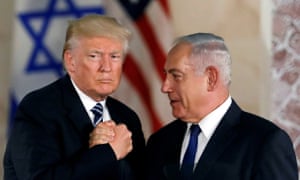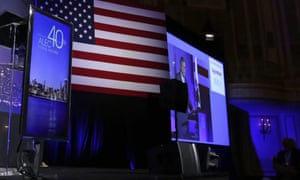Wat intensieve landbouw ons echt kost
Landbouw De landbouw in Nederland moet veranderen, schrijft Carla Koen . Want er zijn nog veel meer nadelen dan de stikstofcrisis doet vermoeden.
/s3/static.nrc.nl/bvhw/files/2019/10/data50752829-5f9625.jpg) Illustratie Hajo
Illustratie Hajo
De stikstofuitdaging heeft de discussie over de landbouw in Nederland weer doen oplaaien. Talloze bouwprojecten liggen stil, boeren protesteren. Maar de problemen die samenhangen met de Nederlandse landbouw zijn vele malen groter dan de stikstofkwestie doet vermoeden. Het gaat niet alleen om natuurgebieden, biodiversiteit, en klimaat, maar ook om waterwinning voor nu en in de toekomst en de volksgezondheid.
/s3/static.nrc.nl/images/gn4/stripped/data50742738-ddd66b.jpg)
Carla Koen is hoogleraar technologie, strategie en entrepreneurship aan de TIAS School for Business and Society, Tilburg University. Lid van de voormalige Taskforce Verdienvermogen Kringlooplandbouw.
De verborgen kosten van de Nederlandse landbouw of kosten die gedragen worden door de Nederlandse bevolking voor het behoud van de exportpositie van de landbouw, zijn gigantisch. Bestuurders op landelijk, provinciaal en gemeentelijk niveau moeten hun verantwoordelijkheid nemen en de belangen van de Nederlandse burgers en hun natuurlijk kapitaal behartigen.
Het is nodig dat de Nederlandse boeren en hun belangenbehartigers hun moreel kompas hervinden en het rentmeesterschap (weer) omarmen.
Net als andere sectoren en bedrijven moet landbouw gehouden worden aan de principes van ‘people, planet, profit’. En net als andere sectoren moet de landbouw veranderen om toekomst te hebben in Nederland, Europa, en de wereld.
Data van de GGD’s en interviews met artsen in Nederland bevestigen dat de luchtkwaliteit in Nederland veel schade aan de gezondheid veroorzaakt. Meer dan in andere provincies en gecorrigeerd voor intensiteit van verkeer en roken worden in de zogenoemde ‘veeprovincies’ (Noord-Brabant, Limburg, Gelderland en Overijssel) hogere percentages waargenomen van gezondheids-problemen die hiermee kunnen samenhangen.
Dit geldt voor acute tekortkomingen in de longfunctie bij volwassenen, astmatische kinderen, longontsteking, COPD, het aantal invasieve luchtwegtumoren, en sterfte door ziekten van de luchtwegen.
Aandoeningen van luchtwegen
De wettelijke normen voor fijnstof en stikstofdioxide in Nederland beschermen niet tegen gezondheidsschade en zijn fors hoger dan de advieswaarden van de Wereldgezondheidsorganisatie (WHO). Behalve met aandoeningen van de luchtwegen is fijnstof ook in verband gebracht met andere risico’s, zoals hoge bloeddruk en beroertes. West-Brabant, Gelderland en Limburg scoren ook in deze statistieken hoog. De vee-provincies hebben ook een bovengemiddeld aantal nierdialyse-patiënten.
Hoewel de Q-koorts-epidemie tussen 2007 en 2010 in Nederland de grootste was die ooit ter wereld is beschreven, lijkt deze door velen alweer vergeten. Het is een voorbeeld van een zogeheten zoönotische uitbraak, veroorzaakt door het wonen in de nabijheid van een geitenhouderij. De patiënten met Q-koorts kwamen vooral uit het zuidoosten van het land. Tussen 2007 en 2009 raakten 50.000 tot 100.000 Nederlanders besmet.
Op dit moment zijn naar schatting 95 van deze patiënten overleden en ervaren chronische Q-koortspatiënten verminderde kwaliteit van leven. Een schatting van de totale kosten gedragen door de Nederlandse bevolking als gevolg van de Q-koorts bedraagt gemiddeld 500 miljoen euro. De langere-termijnkosten van Q-koorts zijn echter nog steeds onbekend.
Antimicrobiële resistentie door gebruik van antibiotica in vee is een steeds groter wordende zorg voor de volksgezondheid. Nederland staat waar het antibioticagebruik in vee betreft op een middenpositie in de EU. Sinds 2014 echter neemt gebruik van antibiotica niet verder af. Ook zijn er bedrijven met een antibioticumgebruik dat vele malen hoger is dan het gemiddelde voor de betreffende sector – dit komt voor bij alle diersoorten.
Bij vleeskalveren is het gebruik van antibiotica nog steeds te hoog. Van melkgeiten en schapen wordt het antibioticumgebruik nog niet geregistreerd. In Noord-Brabant en Limburg moet structureel actie worden ondernomen om het binnenkomen van MRSA – resistente bacteriën ontstaan door antibioticagebruik in varkens – in ziekenhuizen terug te dringen.
Overbemesting en nitraat
Een verdere aanwijzing voor toenemende antimicrobiële resistentie in Nederland is het feit dat in 2016 ten opzichte van 2015 meer ‘uitbraken’ in zorginstellingen gemeld worden van bacteriën die zelfs resistent zijn tegen de antibiotica die als laatste redmiddel worden gebruikt. Artsen geven aan dat we waarschijnlijk nog voor dertig jaar antibiotica hebben. We gebruiken nu reeds reserve-antibiotica.
Met deze wetenschap kunnen we niet anders dan concluderen dat opeengepakt vee houden ongezond is voor het vee en voor de mens die in Nederland gedwongen dicht op het vee leeft. Het is duidelijk dat Nederland naar veel minder vee moet.
Intensieve veeteelt zorgt ook voor vervuiling van het oppervlakte- en dieptewater door overbemesting, met als gevolg te hoge concentraties nitraat. Te veel nitraat in drinkwater kan leiden tot de bloedaandoening methemoglobinemie maar ook tot darmkanker. De hoeveelheid nitraat in drinkwater is in Nederland beneden de norm die de WHO hanteert, minder dan 50 pm/l. De literatuur geeft echter aan dat kanker kan ontstaan beneden de lagere EU-norm, 25 pm/l.
Het te hoge nitraatgehalte in oppervlaktewater geeft in Nederland regionaal problemen met de drinkwaterwinning. Ondanks de Nitraatrichtlijn sloegen waterbedrijven in 2017 alarm geslagen over de bedreiging van de drinkwaterwinning door mest. Zuivering wordt steeds duurder en complexer. In Nederland wordt op ruim tweehonderd punten grondwater gewonnen voor drinkwater. Op 89 van die punten zijn tussen 2000 en 2015 hogere doses meststoffen gemeten dan wettelijk toegestaan. Er zijn de afgelopen jaren 21 waterwinpunten gesloten omdat het water zo vervuild was dat zuiveren te kostbaar werd.
Gifstoffen in grondwater
Doordat het lang duurt voordat meststoffen het grondwater bereiken en dat water weer opgepompt is, verwachten de drinkwaterbedrijven nog decennialang ‘mestgerelateerde problemen’ te ondervinden.
Ook de toepassing van chemische gewasbescherming heeft negatieve gevolgen voor de waterkwaliteit en biodiversiteit in Nederland. Bij de drinkwaterwinning worden vaak te hoge hoeveelheden gifstoffen in het grond- en oppervlaktewater aangetroffen. Mijn werk met de chemische industrie leerde me dat Nederlandse akker- en tuinbouwers gemiddeld twee tot drie keer meer gewasbeschermingsmiddelen gebruiken dan collega’s in andere landen. Een verklaring hiervoor is er niet.
De hoop is dat de stikstofcrisis bestuurlijk verantwoordelijken, boeren en hun belangenorganisaties tot inzicht doen komen dat Nederland en zijn bevolking een andere landbouw verdienen. Een landbouw die in evenwicht is met het land, het natuurlijke kapitaal en de volksgezondheid. Een landbouw die niet voorbijgaat aan de noden van de toekomstige Nederlanders.
Correctie
In dit artikel stond eerder door een fout van de eindredactie dat dat Q-koorts een zoötomische uitbraak was. Dit is veranderd in zoönotische.
---------------------------------------------------------------------------------------
Mijn Commentaar :
1. In de (in het artikel weergegeven) opsomming door Koen van alle majeure schadefactoren voor economie en gezondheid (van mens en dier) als gevolg van de intensieve landbouw in NL mis ik node de broeikasgas-componenten CO2 en Methaan.
2. In plaats van het voeren van (ook landbouw-) beleid op onderdelen - vaak volgend op incidenten - zullen de landelijke, provinciale en gemeentelijke overheden op korte termijn een integrale inventarisatie moeten maken van de voornoemde schadelijke invloed van de intensieve landbouw.
3. Pas daarna kan een totaalvisie worden ontwikkeld en aan de hand daarvan beleidsmaatregelen worden ontworpen en geïmplementeerd.
4. Daarmee wordt eveneens voorkomen dat de (hoofd-) verantwoordelijke beroepsgroep zich steeds weer opnieuw geconfronteerd ziet met ad hoc wetgeving op onderdelen.
5. Het zal daarbij onontkoombaar zijn, dat de ontwikkeling en uitvoering van het NLse landbouwbeleid niet zoals nu, standaard aan beroepsgroep-gerelateerde personen wordt uitbesteed.
6. Niet alleen de economische, gezondheids- en milieuschade door intensieve landbouw zal in de beleidsvorming (en handhaving) tot uitdrukking dienen te worden gebracht, maar ook de middel- en lange termijn schade die Nederland oploopt en bijdraagt als gevolg van de invloed van voornoemde negatieve factoren op de globale menselijke habitat.
/s3/static.nrc.nl/klimaat/files/2019/10/hh-82092143.jpg) Lees ook:Stikstofcrisis biedt kansen voor een duurzamer Nederland
Lees ook:Stikstofcrisis biedt kansen voor een duurzamer Nederland/s3/static.nrc.nl/images/gn4/stripped/data50692267-025b4c.jpg) Lees ook:‘Niet de overheid, maar de boeren hebben de regie’
Lees ook:‘Niet de overheid, maar de boeren hebben de regie’





